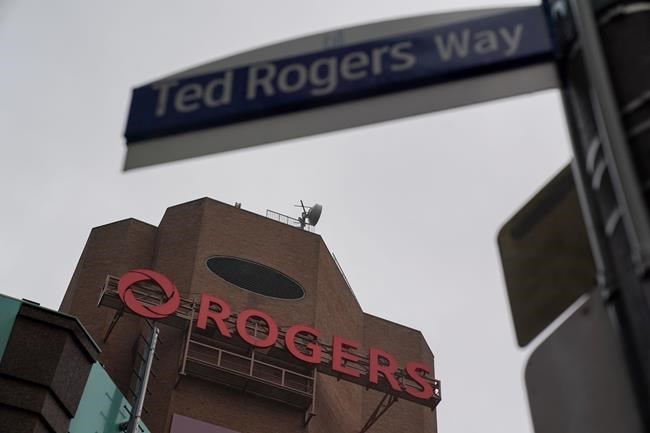TORONTO — Executives at Shaw Communications Inc. are sure to be watching closely as a battle for control at Rogers Communications Inc. — which bought its Calgary-based rival earlier this year in a $26-billion deal — heads to court, but experts say that it's in Shaw's best interest to stay the course.
The tie-up remains a win for Calgary-based Shaw, they say, because it would be better off as part of a combined company and Rogers is one of the company's only possible suitors in the country.
Regulatory filings in April revealed that Bell Canada parent BCE Inc. had also approached Shaw about a takeover but eventually walked away from a deal, apparently over regulatory concerns. That left the path clear for Rogers' bid.
Shaw now has little wiggle room, even as Rogers' path past its bitterly divided board and executive team remains unclear.
"They can't extend any influence at this stage, so I think they just have to wait and see what happens," said Richard Powers, national academic director of the Rotman School of Management.
Regulatory approval for the Rogers-Shaw deal is pending.
In the meantime, Edward Rogers, the son of late Rogers founder Ted Rogers, has launched court proceedings as he fights for control of the company's board of directors.
He has asked B.C.'s Supreme Court to declare legitimate the newly constituted board he formed after being ousted as Rogers Communications' board chair earlier this month after media reports made public a failed plan to replace CEO Joe Natale with the company's chief financial officer.
Edward Rogers claims he had the power to make changes to the board because he runs the family's Rogers Control Trust, which holds 97 per cent of the firm's Class A voting shares.
However, his mother, sisters and their associates argue a previous iteration of the board is the only legitimate one, leaving the company with two factions claiming to be in control. The court case is scheduled to begin on Nov. 1
Shaw chief executive Brad Shaw has so far said little amid the drama, aside from reiterating his support for the Rogers deal.
If Shaw backs out of the takeover, a material change report shows it will owe Rogers a break fee of $800 million. If Rogers walks away, it must pay Shaw $1.2 billion.
Shaw would be starved for buyers if the deal falls apart, said Kai Li.
"It's hard to see any other player in this market making a comparable offer," said the professor at the University of British Columbia's Sauder School of Business.
Aside from Rogers and Shaw, she pointed out the country has only two other major telecom players: Telus Corp. and BCE.
"BCE may or may not be a potential second buyer, depending on the reasons for the failure of the deal with RCI," wrote Desjardins analyst Jerome Dubreuil in a note to investors. (RCI is Rogers' stock ticker.)
But he doesn't think BCE would fork over as much cash.
"We believe a BCE offer at $40.50 is unlikely to be on the table if RCI were not a potential buyer," he said.
So far, the Rogers dispute has caused Shaw's share price to slump to about $35 in recent days, which is higher than March's pre-deal price of $23.90 but lower than the $40.50 per share Rogers agreed to pay for the company.
Despite the slump, Dubreuil predicted Shaw's share price would fall even further if the deal doesn't move forward, though he said it would likely remain higher than the pre-deal price.
Dubreuil believes Shaw's share price could find support in the high $20s because its latest quarterly results showed signs of improvement in its cable business and recent wireless network decisions made by the CRTC could benefit Shaw.
Li thinks it's possible a U.S. company would consider buying Shaw, but it will already be too late to repair some of the damage from a failed deal.
In anticipation of a Rogers takeover, she said Shaw bowed out of recent 5G spectrum auctions.
"Being the smallest of the four players, now they really do not have resources and infrastructure," she said.
"That's why they were thinking it's best for them to be taken over."
This report by The Canadian Press was first published Oct. 27, 2021.
Companies in this story: (TSX:RCI, TSX:SJR, TSX:BCE)
Tara Deschamps, The Canadian Press




